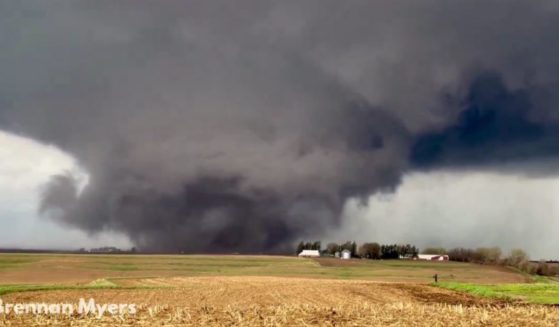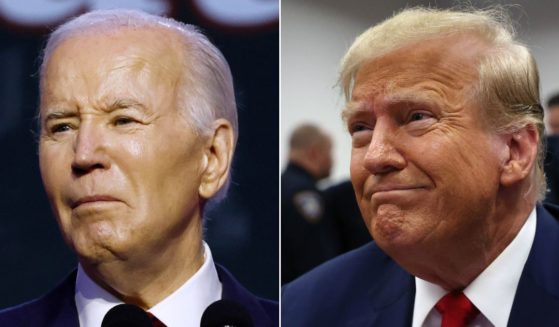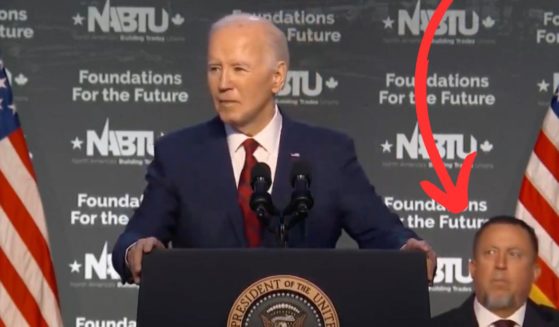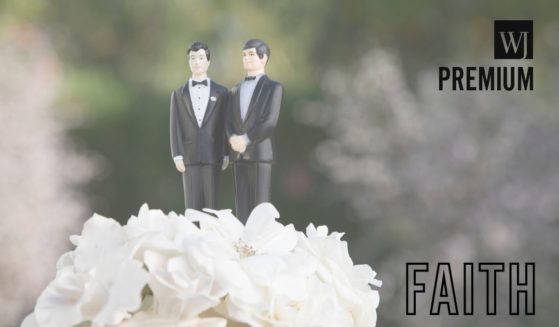Rushdie Stabbing Narrative Turned Upside Down, Suspect Reportedly Had Contact with Someone Beforehand
In the hours and days following the terror attack on author Salman Rushdie in Chautauqua, New York, on Friday, the implied message — from the authorities and the mainstream media — was clear:
Alleged attacker Hadi Matar was acting alone, and don’t you dare suggest otherwise.
After all, Matar, at age 24, wasn’t even born in 1989, when then-Iranian ruler Ayatollah Khomeini issued a fatwa, or religious edict, offering millions of dollars to anyone who murdered Rushdie. It’s unclear whether Matar ever read the book that inspired the fatwa — “The Satanic Verses,” a novel in which dream sequences depict a fictionalized life of Muhammad, Islam’s founder. That’s a big no-no to Islamist zealots.
(Although the fatwa may have had a bit more to do with the fact that one of the characters in the book, a fanatical exiled imam, was, a blatant caricature of Khomeini, the U.K. Guardian pointed out.)
According to the New York Post, the mother of the suspect — “a basement-dwelling loner who barely worked, never had a girlfriend” — said he “changed” after visiting his father in Lebanon in 2018. On his return, she said, her son was unhappy that she had “encouraged him to get an education instead of focusing on religion.”
“He was angry that I did not introduce him to Islam from a young age,” she said, according to the Post.
“To tell you the truth I never heard of [this] writer before,” she said, according to the U.K. Daily Mail. “I never read any of his books, I didn’t know that such a writer even exists. I had no knowledge that my son ever read his book.”
However, in that Daily Mail report, published Sunday, there was a detail that shouldn’t be overlooked. Matar’s parents, the Daily Mail said, emigrated to the U.S. from the Lebanese city of Yaroun, which the Daily Mail described as “a stronghold of the Iranian-backed terror group Hezbollah.”
While her husband returned to Lebanon, Matar’s mother stayed behind in the United States. However, Matar did visit his father four years ago — and became far more radical, according to his mother.
So, that raised the possibility that Matar had been in contact, at least, with Iranian-led terrorists.
Later on Sunday, the “lone wolf” narrative took another hit when the Canadian-based website Vice reported that intelligence officials in both Europe and the Middle East said the accused Rushdie attacker had current contacts with members of the Iranian Islamic Revolutionary Guard Corps, a terrorist offshoot of the Iranian military.
What’s more, they suspect the IRGC may have had played a role in the attack, even if it didn’t mean providing Matar with material support.
“A NATO counterterrorism official from a European country said the stabbing had all the hallmarks of a ‘guided’ attack, where an intelligence service talks a supporter into action, without direct support or involvement in the attack itself,” Vice reported.
“Close scrutiny needs to be paid to his communications,” the official said.
“More investigation will reveal more information on the exact nature of the links.”
Meanwhile, a Middle Eastern intelligence contact told Vice it was “clear” the attacker had contacted “people either directly involved with or adjacent to the Quds Force.”
The Quds Force is the IRGC’s external operations wing.
“It’s unclear the extent of the involvement, if this was a directly supported assassination attempt or if it was a series of suggestions and directions in picking a target,” the official added.
According to NBC News, the suspect’s social media profiles also showed him expressing sympathy for Shia extremism in general and the IRGC in particular.
To top it all off, the attack came just two days after the Department of Justice announced charges against a member of the IRGC for a plot to murder former national security adviser John Bolton. That planned attack was allegedly a reprisal for the 2020 missile strike in Baghdad that killed Iranian Maj. Gen. Qassem Soleimani, then the head of the IRGC.
As of right now, Matar is facing one count of attempted second-degree murder for his attack on Rushdie, as well as one count of second-degree assault on another man who was on the stage. He’s being held without bail.
Don’t be surprised, however, if he ends up also facing charges related to cooperating with a state-sponsored Islamic terrorist organization.
“A 24-year-old born in the United States did not come up with Salman Rushdie as a target on his own,” the Middle Eastern intelligence source told Vice.
“Even an avid consumer of Iranian propaganda would have some difficulty finding references to Rushdie compared to all the other, modern enemies, designated by the regime.”
The regime, however, has a longer memory. While Tehran has downplayed the fatwa somewhat — Rushdie came out of hiding in late 1990s after then-Iranian President Mohammad Khatami said the threat against him was over, according to Reuters — consider the reaction of the Islamic Republic’s leadership to the attack on Rushdie.
It was was hardly conciliatory.
“[Regarding] the attack on Salman Rushdie, we do not consider anyone other than himself and his supporters worthy of … reproach and condemnation,” foreign ministry spokesperson Nasser Kanaani said Monday.
It’s worth noting that, as all of this is going on, negotiators are still trying to make the Iran nuclear deal work. Monday was the deadline the European Union had set for the United States and Iran to assent to a “final text” of a renewed agreement, according to The Wall Street Journal. Iran demurred, saying the United States needed to address several issues and “show flexibility.”
If President Joe Biden’s administration had any backbone when dealing with Tehran, it would consider this a blessing in disguise, allowing the White House to walk away from a bad deal with a government that is, at the very least, indirectly responsible for (and unapologetic about) an attack on a writer, a naturalized American citizen, on American soil.
Not only that, but early signs point to Iran being more directly responsible for it through the IRGC, one of Tehran’s many state-sponsored tendrils of terrorism.
Whatever the case, it’s time to stop assuming this is a “lone wolf” attacker, an alienated young man living in his mother’s basement who has nothing to do with a wider Islamic extremist threat.
Yes, perhaps that’s all it turns out to be — but preliminary signs indicate there could be something far more sinister at play here, no matter what the administration-approved, mainstream media narrative might be.
Truth and Accuracy
We are committed to truth and accuracy in all of our journalism. Read our editorial standards.












